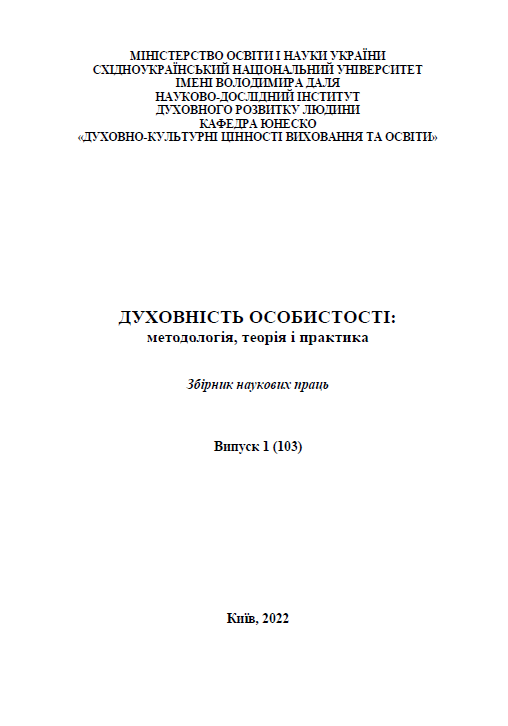HUMANISTIC PSYCHOANALYSIS OF ERICH FROMM AND ITS SIGNIFICANCE FOR MODERN PEDAGOGICAL SCIENCE
DOI:
https://doi.org/10.33216/2220-6310-2022-103-1-131-139Keywords:
Humanistic psychoanalysis, psychoanalytic pedagogy, E. Fromm, education, personality, neo-Freudianism, childAbstract
The article analyzes the contribution of the famous German philosopher and neo-Freudian E. Fromm to the dissemination of the ideas of psychoanalytic pedagogy. The views of E. Fromm on the difficulties of personality formation, the philosophy of education, the organization of training and education of the next generation are revealed. A comparative analysis of the views of Soviet and modern Ukrainian scientists on the significance of E. Fromm's ideas has been carried out. It has been established that the theoretical views of E. Fromm were consistent with the ideas of the representatives of anti-pedagogy and consisted in the deschoolization and dissemination of alternative educational technologies. It is proved that, unlike the Freudians, who considered the personality in the context of biological conditioning, in the ideas of E. Fromm the main attention was paid to the social environment and culture in which the personality grows. If a person is discouraged and emotionally depressed by life's troubles, then destructive drives and a desire to conquer a hostile world will dominate in his/her behavior. If a person is surrounded by love, an atmosphere of freedom, and the necessary conditions have been created for his/her self-realization, then libidinal inclinations aimed at cooperation and mutual support will dominate in their behavior. It is concluded that the concept of psychoanalytic pedagogy in the views of E. Fromm acquired the features of cultural anthropology and began to take into account the ideas of social philosophy in education. Despite the fact that E. Fromm did not write a complete pedagogical treatise, all his works were permeated with the ideas of re-education and the formation of a new person and society. Prospects for further research are planned in the study of the ideas of other neo-Freudians, in particular K. Horney, H. S. Sullivan and A. Kardiner.

